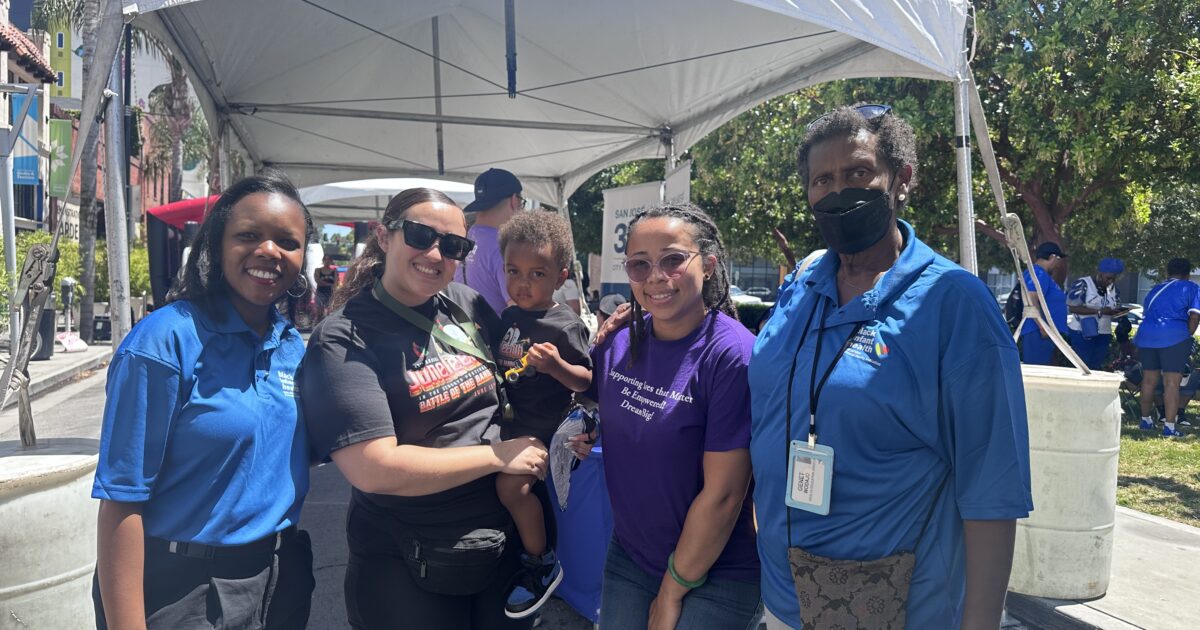The reassignment of a trusted doctor out of Santa Clara County’s Black Infant Health Program has sparked concern for future efforts combating baby mortality. It’s also exposing the tense balancing act of absorbing a massive county budget hole without cutting services.
County officials are moving Dr. Beverley White-Macklin, who has for decades developed a program guiding Black mothers through potentially complicated pregnancies, to another public health role. It’s part of a broader effort to puzzle-piece staff between departments and absorb a systemic budget deficit. But the shakeup has former leaders of the program, and mothers who participated, raising alarms.
“There are so many women who went through this program because they trusted and knew Dr. Bev and any of the referrals she gave. Putting someone in there they don’t know — it will be like starting over again,” Alma Burrell, who formerly managed the program as a county employee for two decades, told San José Spotlight.
Burrell said it can take a long time for Black mothers to build trust with doctors, and that the decision risks undermining the purpose of the program.
“This is part of why we present late with a lot of chronic diseases and why our health outcomes are so dire,” Burrell said.
White-Macklin, who remains a county employee, didn’t respond to requests for comment.
County officials said she is retaining her seniority at the Public Health Department and her level of compensation, though the department is making reassignments to grapple with a budget-balancing plan the Board of Supervisors approved earlier this year. The Black Infant Health Program will keep three program managers.
District 4 Supervisor Susan Ellenberg said the county has hard choices ahead. It’s staring down the barrel of a massive budget shortfall fueled by slow property tax revenue growth and as much as $4.4 billion in federal funding losses come 2030.
“My understanding is that Dr. White-Macklin’s place in our county remains secure. However, like all departments, we expect to experience staffing changes and possibly reductions over the coming months due to significant federal budget cuts,” Ellenberg told San José Spotlight. “Despite these challenges, Black Infant Health, which Dr. White-Macklin has led with distinction for more than 25 years, will remain a priority as I work to balance what will certainly be a series of difficult decisions.”
From 2017 to 2022, Black infants in Santa Clara and San Mateo counties died at an average rate of 8.3 for every 1,000 births, more than double the rate for Hispanic/Latino infants at 2.7, Asians at 2.2 or white infants at 2, according to data from the California Department of Public Health and the Centers for Disease Control and Prevention. The major causes for Black infant deaths include low birthweight and birth defects.
Black mothers also died at a much higher rate in these counties. Between 2018 to 2023, they died at an average rate of 69 deaths per 100,000 births, compared to 18 for white mothers, 13 for Latinas and 8 for Asians.
The Black Infant Health Program provides prenatal and postpartum support groups that teach mothers about labor and delivery, breastfeeding and more. Mothers also receive help from a public health nurse with home visits, breastfeeding consultations, home safety assessments, postpartum depression screenings and medical case management.
Trusted program
Stephanie Allen, a program manager for the African American Community Service Agency in San Jose, went through the program in 2022 before giving birth to her 3-year-old son. She called White-Macklin’s reassignment disheartening.
“I’m concerned that bringing in new leadership could hurt a lot of the trust that’s been built,” she told San José Spotlight.
Allen said the program taught her how to push back with doctors if they ever dismissed concerns about pain or certain symptoms.
“My health provider allowed access to other infant health programs, but they weren’t culturally affirming at all. One class only taught one way to breastfeed, versus Black Infant Health, which incorporated the different sizes of women and being able to adjust your body, different pump options,” Allen said.
She credits the program for giving her the guidance needed to successfully bond with her baby.
“Black Infant Health actually saved my breastfeeding experience — it touched on why Black mothers tend not to breastfeed, taught me why it was important today and elevated the connection between my child and I,” she said.
What sticks with her most, however, was the support she received after giving birth.
“Postpartum was definitely an experience I was not mentally prepared for,” Allen told San José Spotlight. “For the isolation that a lot of mothers felt, the Black Infant Health (Program) provided such a safe space to talk about these feelings we were having and promoted that sense of community and belonging.”
Sarah Rudman, the county’s newly-appointed health officer and public health director, said her department hasn’t forgotten the significance of the program.
“The Black Infant Health and Perinatal Equity programs are critically important for protecting the health and safety of our community, especially infants and parents,” Rudman told San José Spotlight. “These programs rely on federal funding, and we are committed to doing everything we can to protect them.”
Burrell is now chief administrative officer of Roots Community Health, which was founded in Oakland and opened its San Jose branch in 2017. Burrell said it will be difficult for the county program to reach new people without White-Macklin.
“We’re so spread out throughout the whole county. A lot of what we do relies on word of mouth and partnerships with faith communities, but those partnerships take time to establish as well,” Burrell said. “Beverley knows the county — she knows how to maneuver the system.”
Contact Brandon Pho at [email protected] or @brandonphooo on X.

